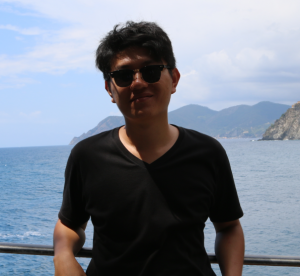PhD Seminars 8-11-2021
 Talk 1
Talk 1
Speaker
Zihao Wang (Epione)
Title
Deep Generative Learning for Medical Data Processing, Analysis and Modeling: Application to the cochlea CT imaging
Abstract
This thesis aims to expose several applications of artificial intelligence (AI) for medical data processing and understanding. Medical imaging is a domain generating massive data, which thus requires more and more time for clinicians to process and analyze them. In this manuscript, we show how generative learning can help in many aspects of the processing, understanding, and modeling of CT images of the inner ear.
First, we develop a deep generative model to solve a commonly encountered problem in CT imaging: the presence of metal artifacts. This model may allow clinicians to better assess the quality of cochlea implant (CI) positioning with a reduced presence of artifacts. To this end, a generative adversarial neural network (GAN) framework equipped with a specially designed loss function is proposed. That network was trained on a synthetic CT volume dataset resulting from the application of X-ray physics simulations.
Second, since many deep learning segmentation methods fail to cope with explicit shape representations, we propose a Bayesian generative framework that addresses the issues of shape model inference in 3D images. We focus on the balance between shape and appearance through an Expectation-Maximisation (EM) approach. The method is applied to the segmentation of more than 200 patient CT volumes. The results show performances that are comparable to supervised methods and better than previously proposed unsupervised ones. Besides, we show how the proposed framework can estimate the uncertainty in the shape parameters.
Third, we tackle the issue of the compact representation of CT images through a novel flow-based deep generative network. Generative models can create an implicit distribution of the imaging dataset from which one can generate samples. For a better representation, we proposed a Quasi-symplectic Langevin Variational Autoencoder that improves the current gradients, flow-based generative models.
Finally, we propose an online framework for medical landmarks detection that can cope with the difficulty of manually positioning landmarks in volumetric images. The one-shot training framework includes an offline step that only requires a single annotated image for training and is applied to the annotation of hundreds of images.
- November 8, 2021, 2:00 pm
